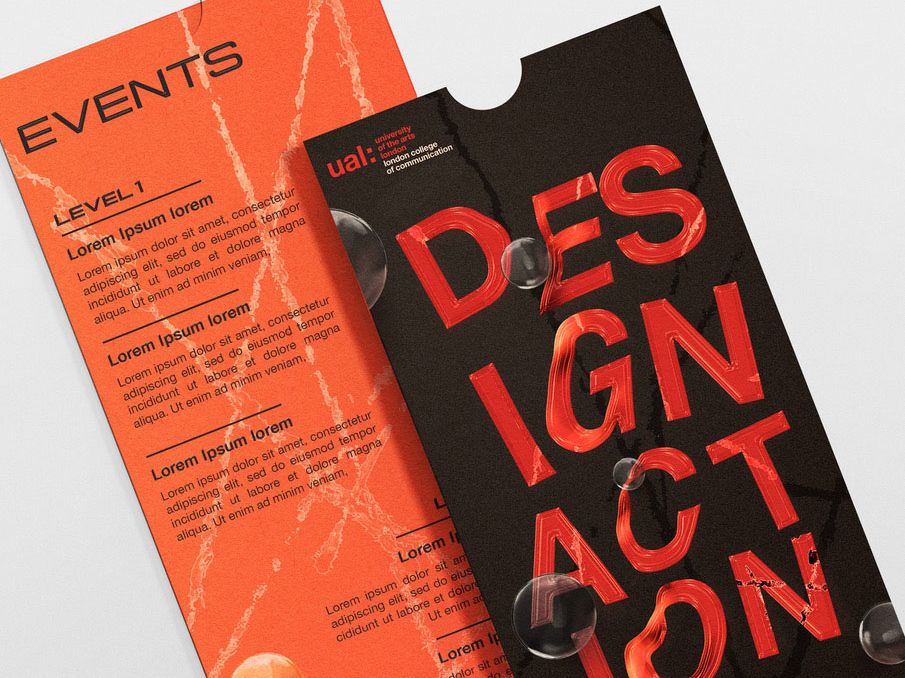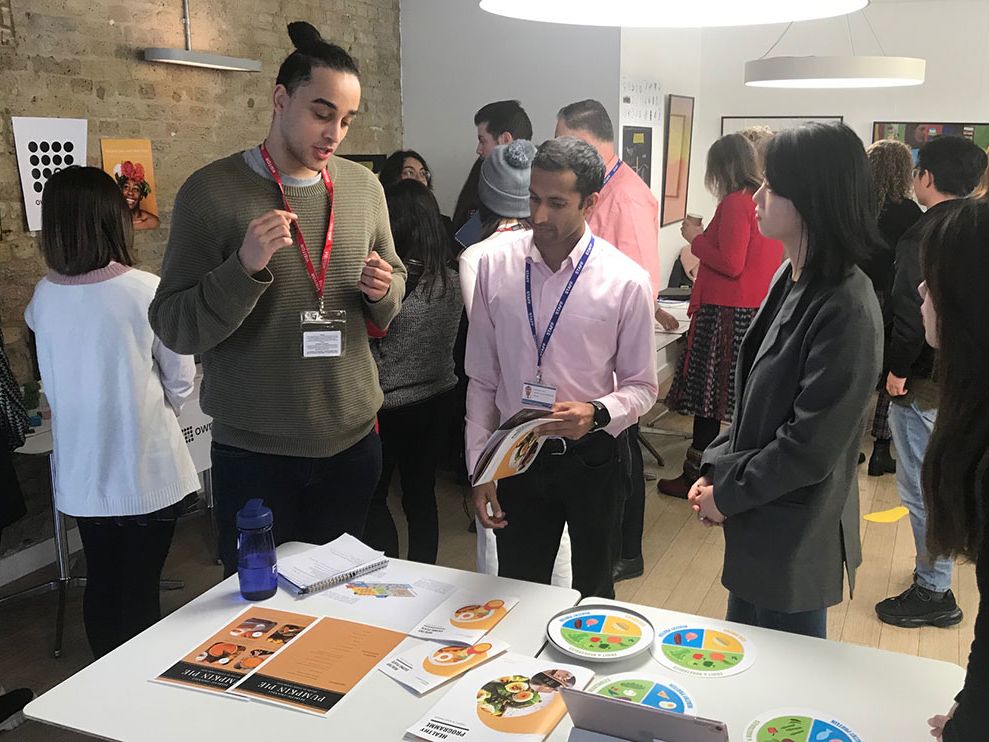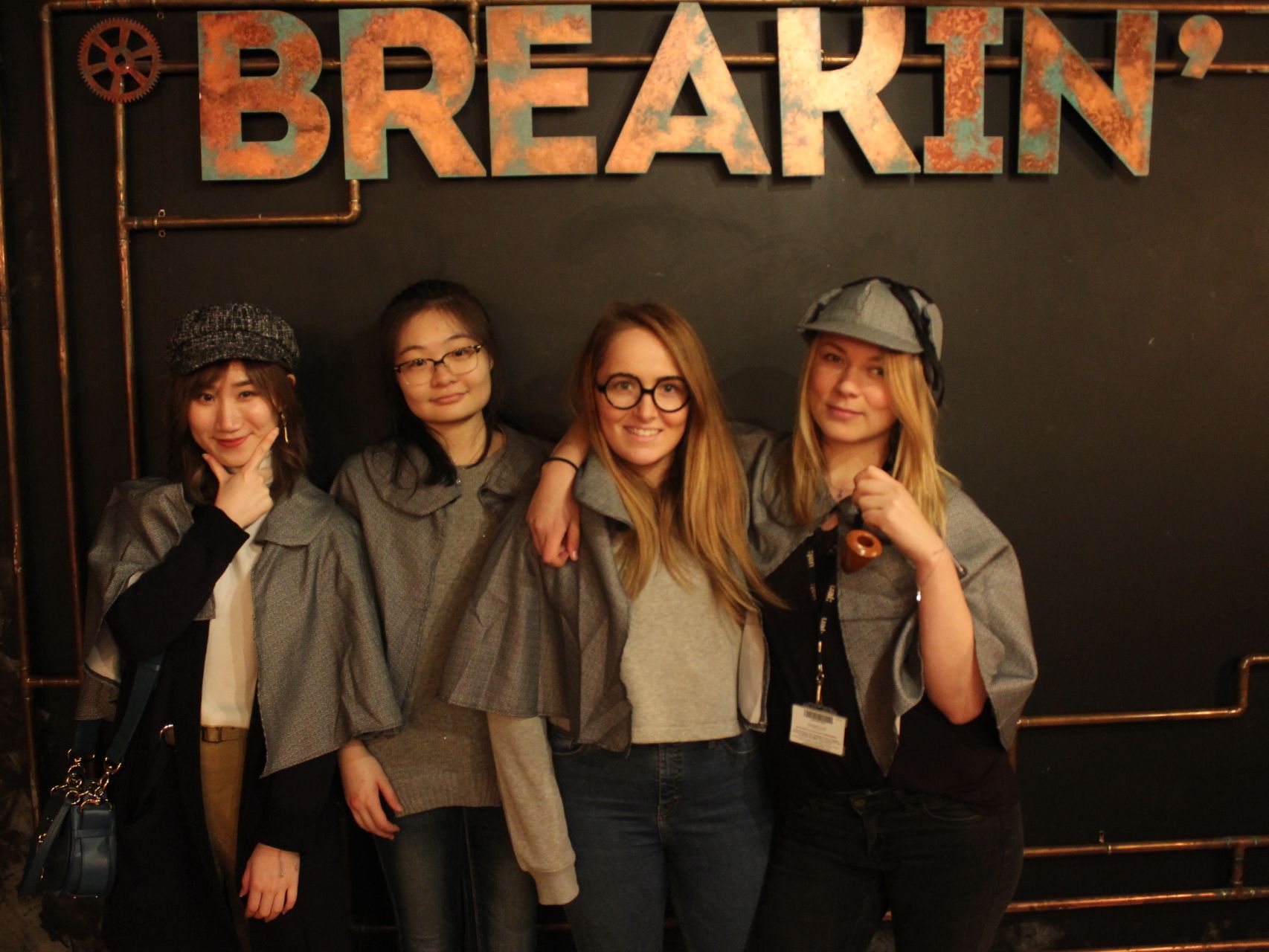With September marking a ten-year timeline for the world to reach the United Nations’ Sustainable Development Goals, staff and students at LCC have explored the role of design in ‘visioning’ the possible futures of 2030.
Students from BA (Hons) Design for Branded Spaces and MA Design for Social Innovation and Sustainable Futures, along with lecturer Justyna Kabala, have created ‘design in action’ by reimagining their past creative outputs in response to some of the greatest social and environmental challenges of our time.
Underpinned by one of the central values of the Design School Manifesto, ‘interrogating the past to shape our future’, the key narrative of their virtual exhibition grounds the question: How can we make the research threads of social innovation and sustainability visible in the teaching practice of LCC’s Design School?
Participants were also invited to both consider such research threads from the position of contemporary design theory and practice as another of the Manifesto's values, wherein design is conceived as ‘a site of action and agency to radically transform our world’.
United Nations' Sustainable Development Goals
Developed as a blueprint for achieving a better and more sustainable future for all, the UN Sustainable Development Goals comprise of 17 aims shaped to address global challenges relating to poverty, inequality, climate change, environmental issues, peace and justice.
Through a series of interconnected themes, the goals encourage societies to 'leave no one behind' through urgent action by 2030 through suggestions such as wasting less food and supporting local farmers to reach ‘Zero Hunger’, and using only energy-efficient appliances and lightbulbs to harness affordable, clean, energy.
-
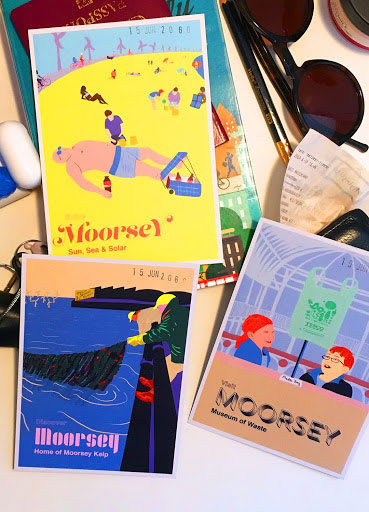
Image credit: 2060 Moorsey Postcards, Joey McAleese and Pete Ashworth.
-
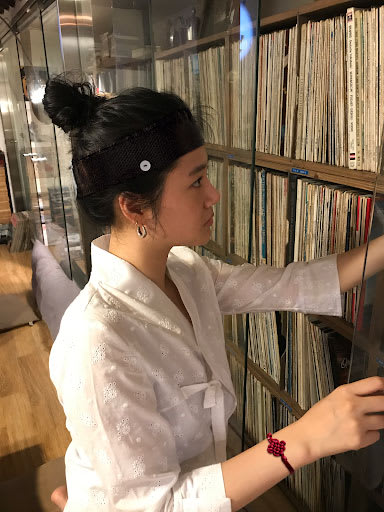
Image credit: The Commonality of Sangtu, Rebecca Ghim.
-
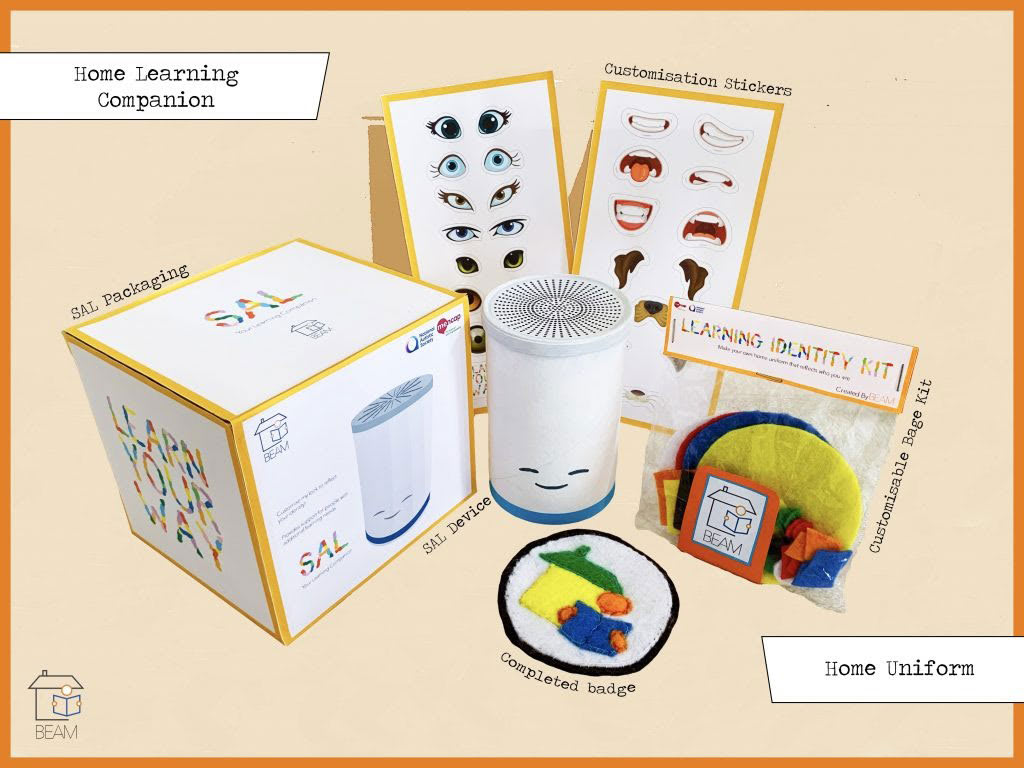
Image credit: KitSAL and the Learning Identity Kit, Amy Burnett
-
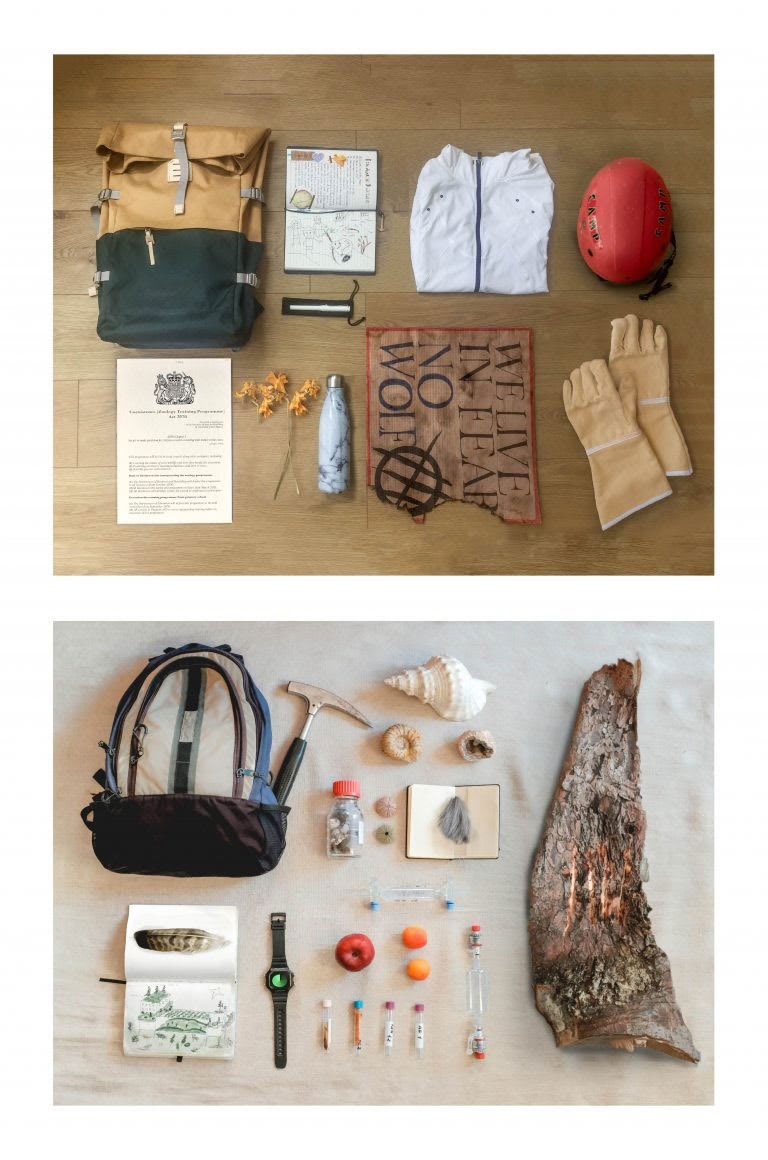
Image credit: The adventure in a future of rewilding 2120, PiPi Yuan and Giulia Capasso.
Joey McAleese and Pete Ashworth: Welcome to the Swinging 2060s builds on existing solutions to climate change by envisioning the future of popular English tourist destinations 40 years from now. Centred on the fictional seaside town of Moorsey, the project is built on three core concepts: repurp, or circular material flows; a booming seawood economy, which replaces unsustainable plastics and textiles; and DIY energy, which includes active transport and affordable renewable energy.
Rebecca Ghim: Taking its name from ‘Sadaejuui’, the Korean term used to describe flattery towards strength, Decolonizing Sadaejuui in Korean History aims to challenge a polycentric capitalist world build on imperialist ideals – particularly one in which ‘acceptable’ art and design is largely white and Euro-centric. Rebecca’s project provides insight into the celebratory potential of reversing colonial impacts, along with an exploration of the trauma that comes with colonialist violence and abuse.
Amy Burnett: Beam is a speculative organisation which exists in a future where home-schooling is the default, proving less adaptable for students with special needs. The goal of Amy’s project is to provoke conversation about who designs are currently made for by focusing on providing quality education to pupils of all abilities while bridging the gap between SEN education and the mainstream.
PiPi Yuan and Giulia Capasso: The adventure in a future of rewilding 2120 reflects on society’s movement from a perfectly designed ecosystem to a ruthless ‘eco-system’ in which more power comes from consuming and letting go than holding on. This project creates a future of ‘rewilding’ to encourage audiences to once again appreciate the deep connection between people and nature.
-
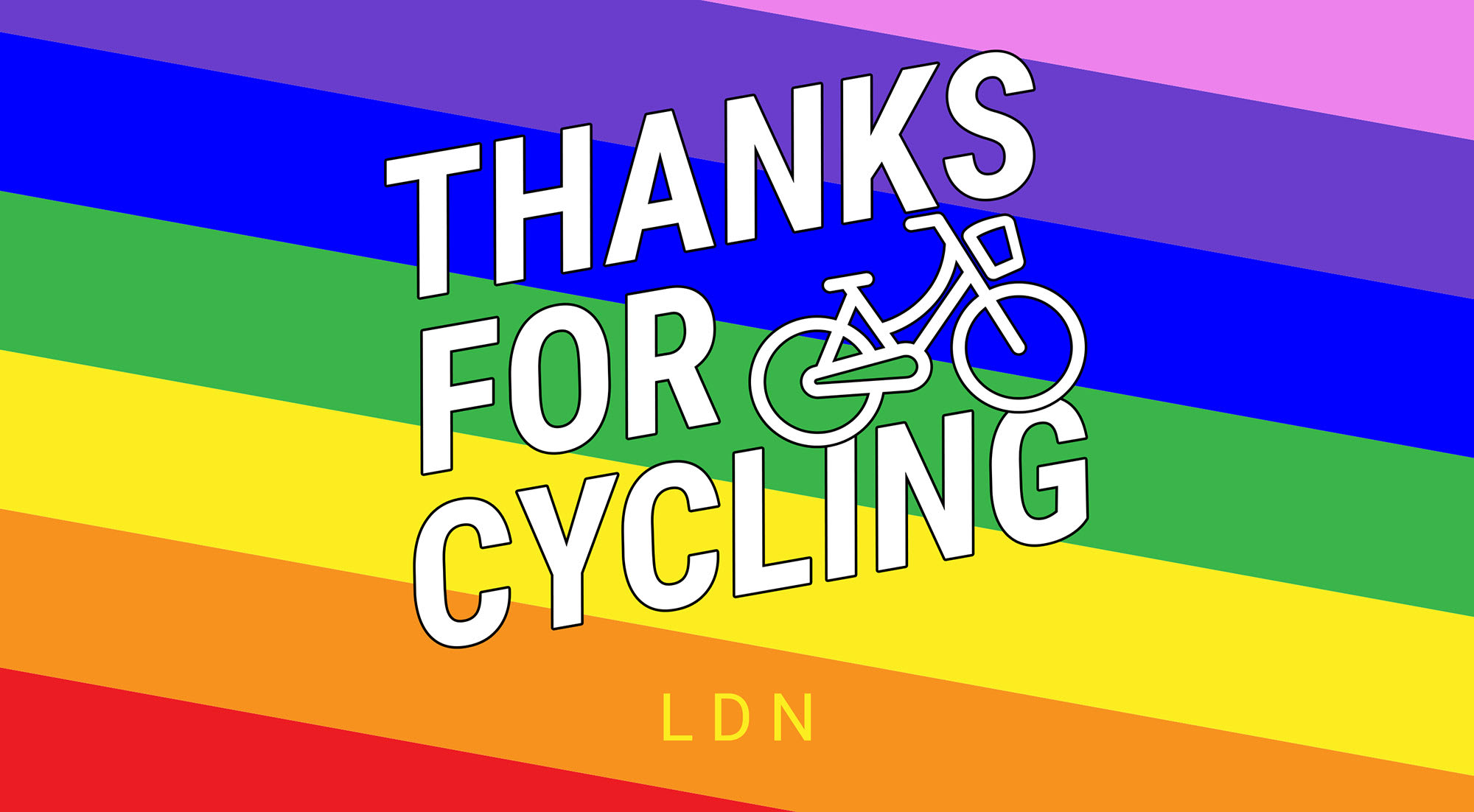
Image credit: Thanks for Cycling, Pete Ashworth.
-
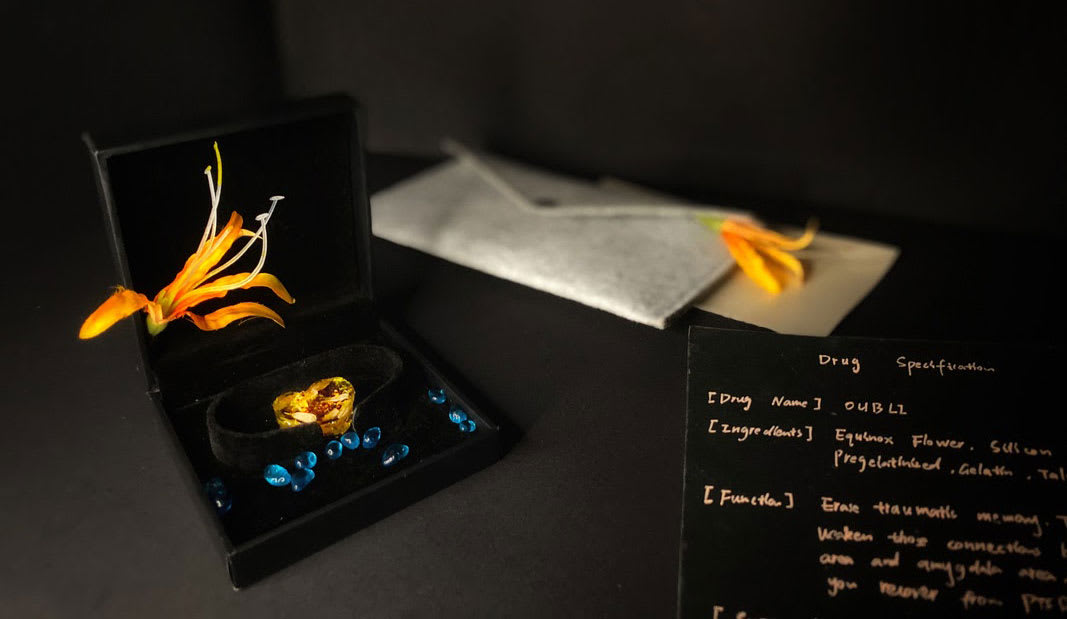
Image credit: OUBLI PILL 2080, Xin Li.
-
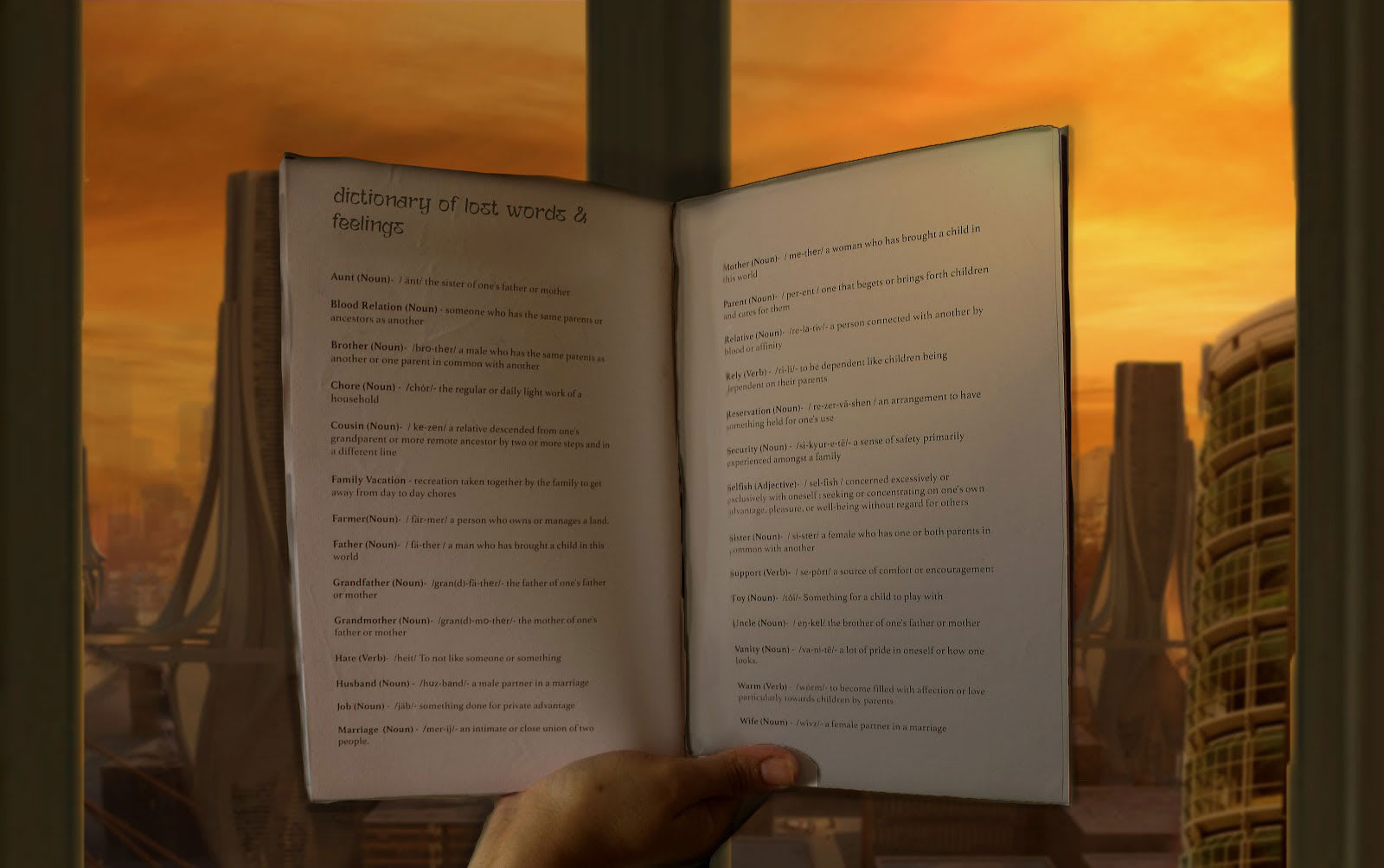
Image credit: Families in 2100 Mumbai, Binoli Shah.
-
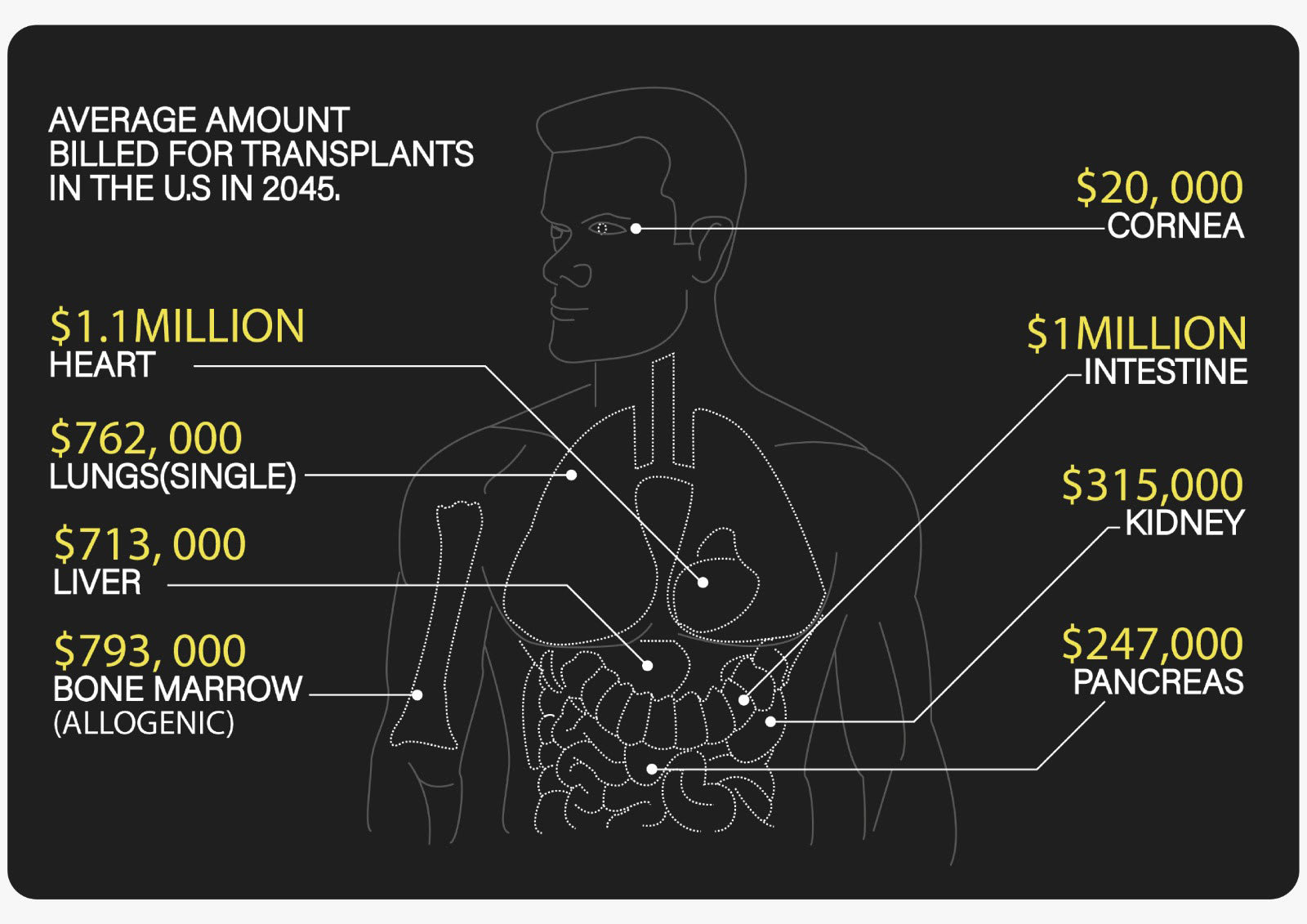
Image credit: The new form of racism in 2045, Qingyang Tan.
Pete Ashworth: Thanks for Cycling aims to normalise utility cycling in London, and highlights its potential as a ‘silver bullet’ for combatting climate change and the obesity epidemic, as well as a key to a more economically mobile society. Pete’s project responds to a crucial design challenge: when modern London has achieved its aim of leading the world as the best cycling city, what tools, products and services will Londoners use to get about by bike?
Xin Li: Escape is set in the year 2080, where society seeks a sense of order and perfection without room for human error. Xin Li’s project explores future approaches to mental health through the lens of Post-Traumatic Stress Disorder (PTSD) and asks whether we can move towards treating mental health issues in the right way.
Binoli Shah: Families in 2100 Mumbai explores UN Goals around gender equality and sustainable communities to explore how our social structures and capacity to care as humans help to create a sustainable future, and asks what our relationships could look like In 60 years without real change.
Qingyang Tan: The new form of racism in 2045 highlights the issue of data injustice in a world which rapidly develops data technology. Qingyang’s project explores the UN goal of reducing inequalities and ensuring no one is left behind to explore the issue of racism In the United States in an imagined future of two decades time
-
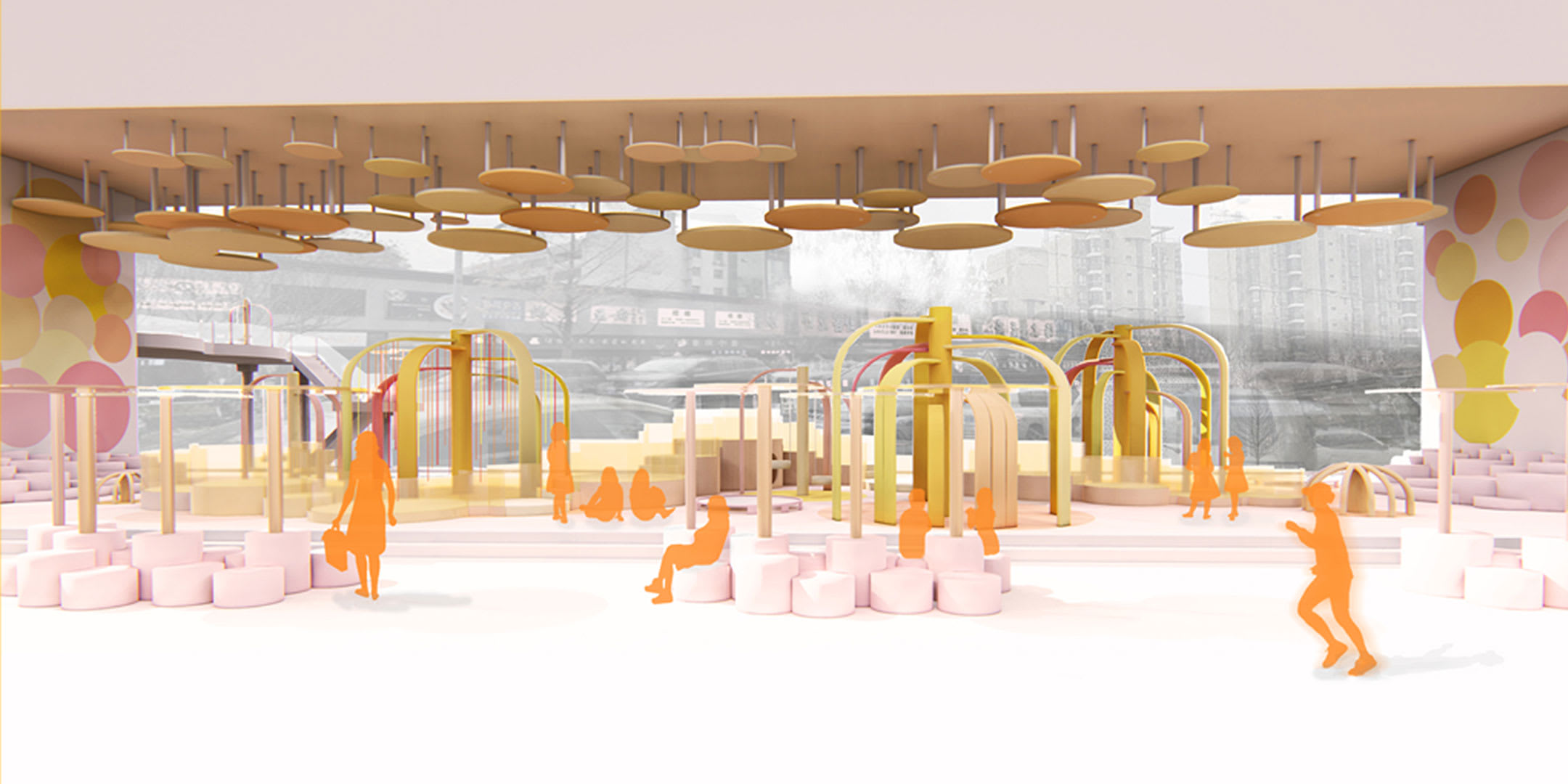
Image credit: Candy Playground, Elaine (Yiping) Zhang.
-
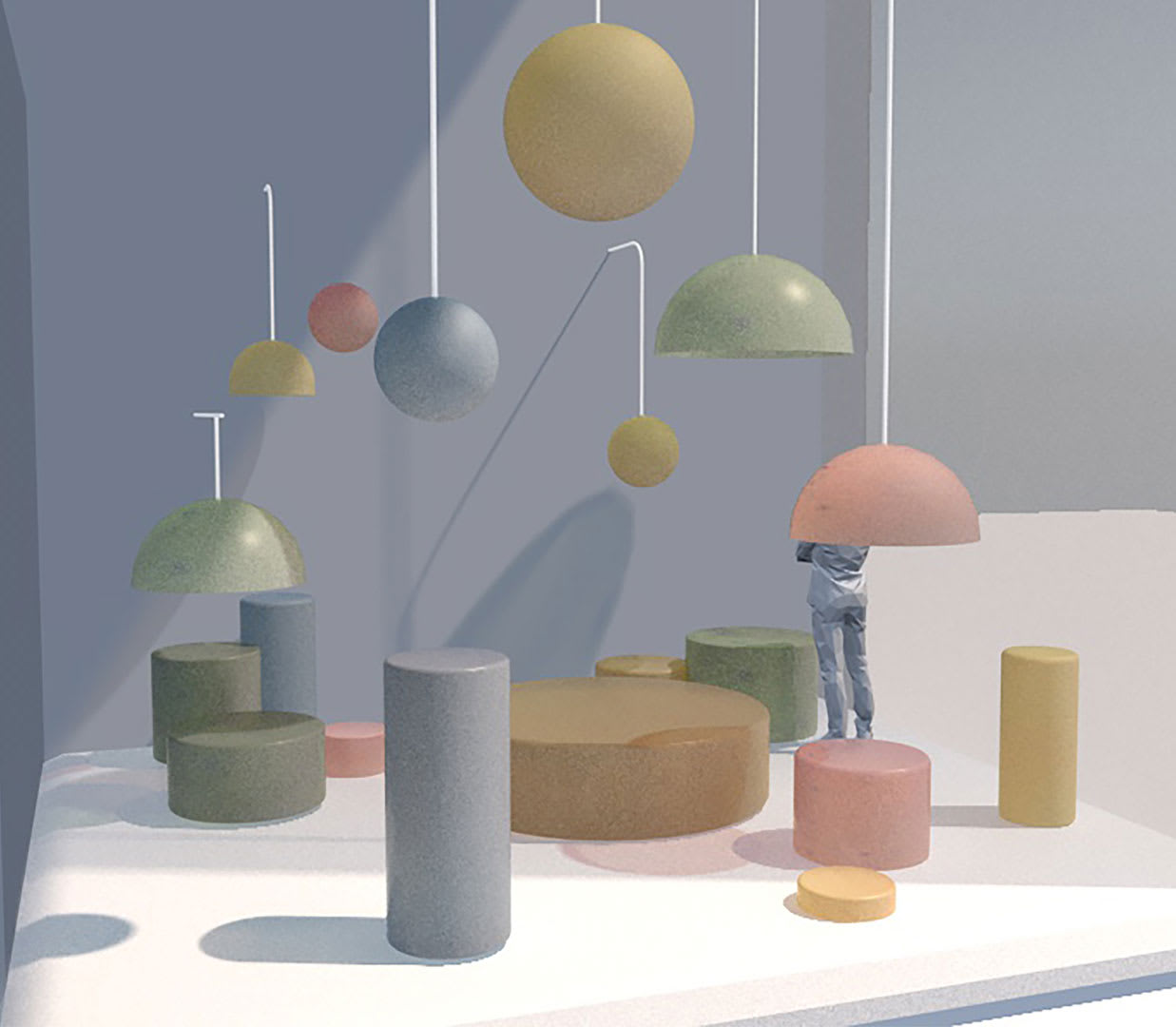
Image credit: The Food Waste Laboratory, Qiongzi Zhu.
-
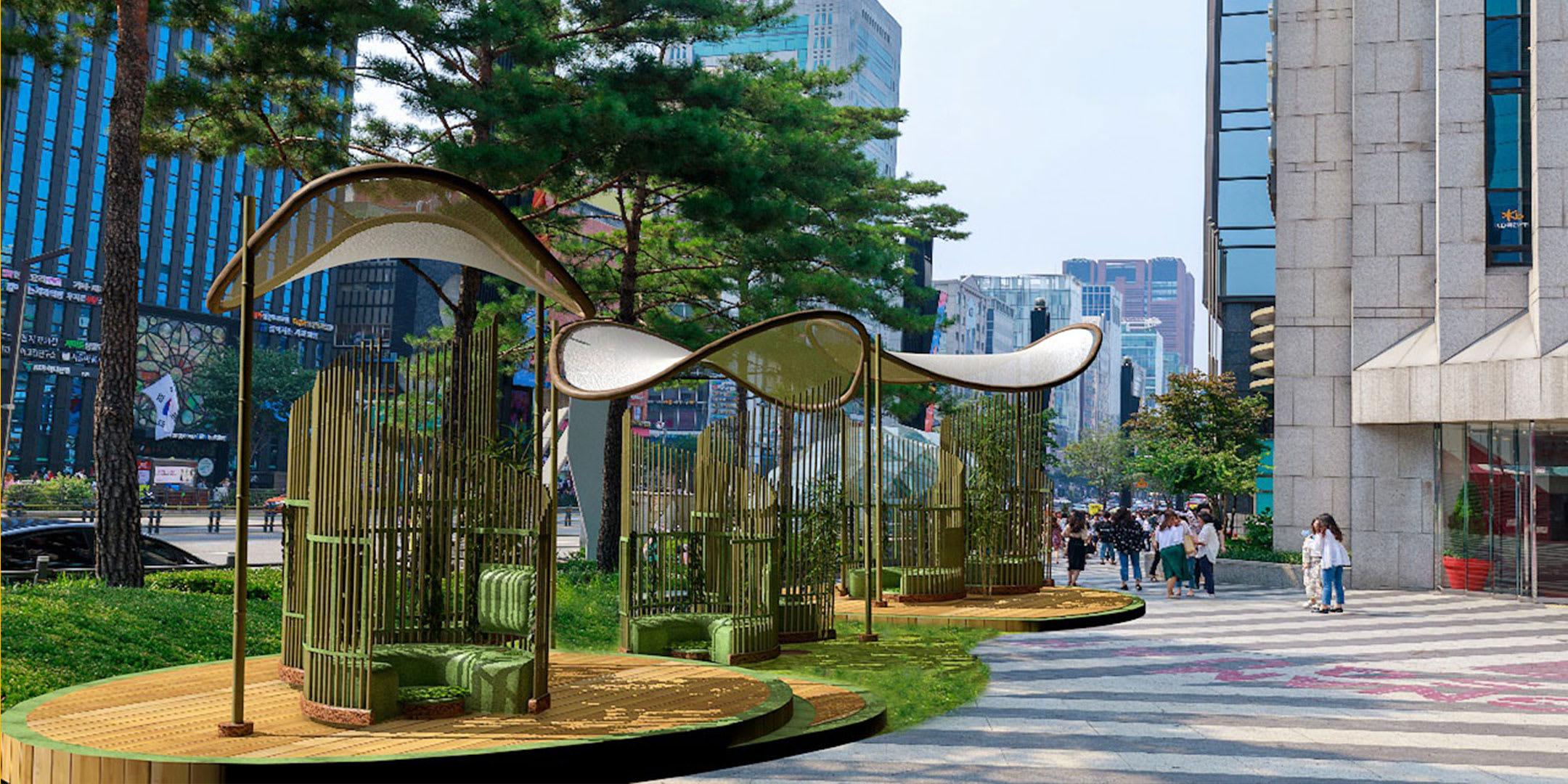
Image credit: The Mindful Urban Bamboo Shelter, Seowon Park.
-
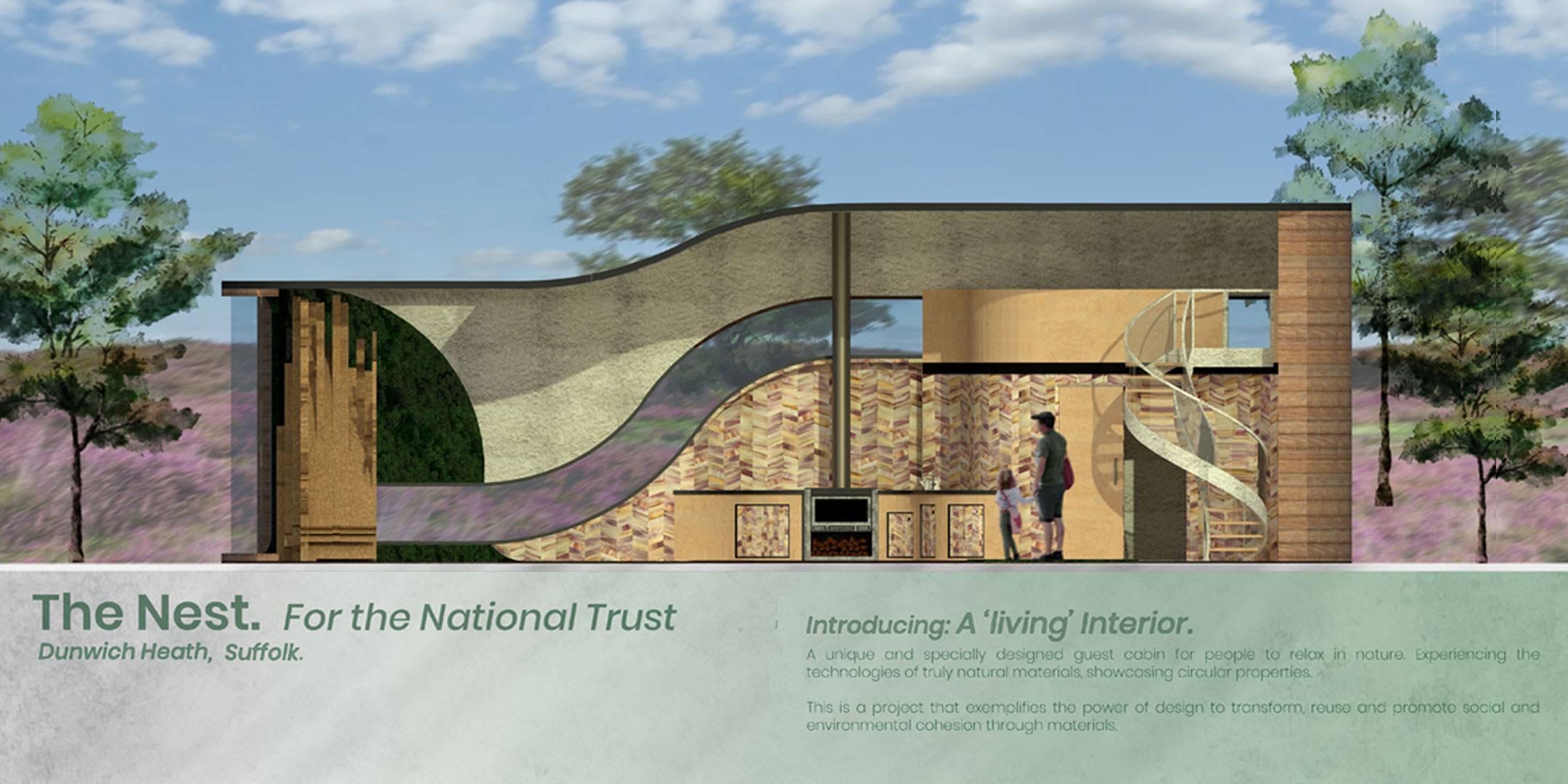
Image credit: The Nest, for the National Trust, Jessica Howell.
Yiping Zhang: Yiping’s project, The Candy Playground, proposes a redesign of a public environment in Shaghai through thoughtful design. This concept brings eco-friendly facilities together with a sense of community to create a place where children interact with others as part of a safe, resilient and sustainable city lifestyle.
Qiongzi Zhu: The Food Waste Laboratory proposes an experimental IKEA-style space which enables visitors to explore the potential of recycling food waste into new furnishing materials, emphasising a more effective approach to the problem of wastage while balancing the huge demand and consumption of the chain’s product range.
Seowon Park: The Mindful Urban Bamboo Shelter aims to create safe refuges for people with anxiety disorders in high-load, high-stimuli public spaces. With carefully considered sensorial elements, Seowon’s work explores the symptoms of anxiety on the body and how design can mitigate the impact, bringing a sense of calm.
Jessica Howell: The Nest, for the National Trust is a branded and unique cabin space created as an indoor retreat for visiting guests with the potential for educating on circular principles. Jessica’s project focuses on the use of four sustainable materials: moss, totomoxtle, cork and mycelium, which reflects the UN goal towards sustainable cities and communities alongside responsible consumption and production.
Justyna Kabala: Night Shifts II addresses issues faced by professionals who work nightshifts at NHS hospitals. LCC lecturer Justyna’s work discusses the wellbeing of workers in the healthcare sector, as well as broader systemic issues in the National Health Service.
Design Action: Explore the programme
Design Action will run online from 12 – 20 September 2020.
Content highlights include:
- An emerging research platform which explores the shifting definitions, debates and practices of graphic design
- A look at professional design practice in the wake of COVID-19
- Exploration of new ecological systems and tools
- A vision of the world in 2030 based on UN Sustainable Development Goals
- Interaction design communication which rethinks concepts of audience participation, presence and space.
Check in with our range of activities and events by following the hashtag #LCCxLDF on social media.
Related links
- Find out more about Design Action at London Design Festival.
- Explore the Design School at London College of Communication.
- Learn more about our BA (Hons) Design for Branded Spaces and MA Design for Social Innovation courses.


